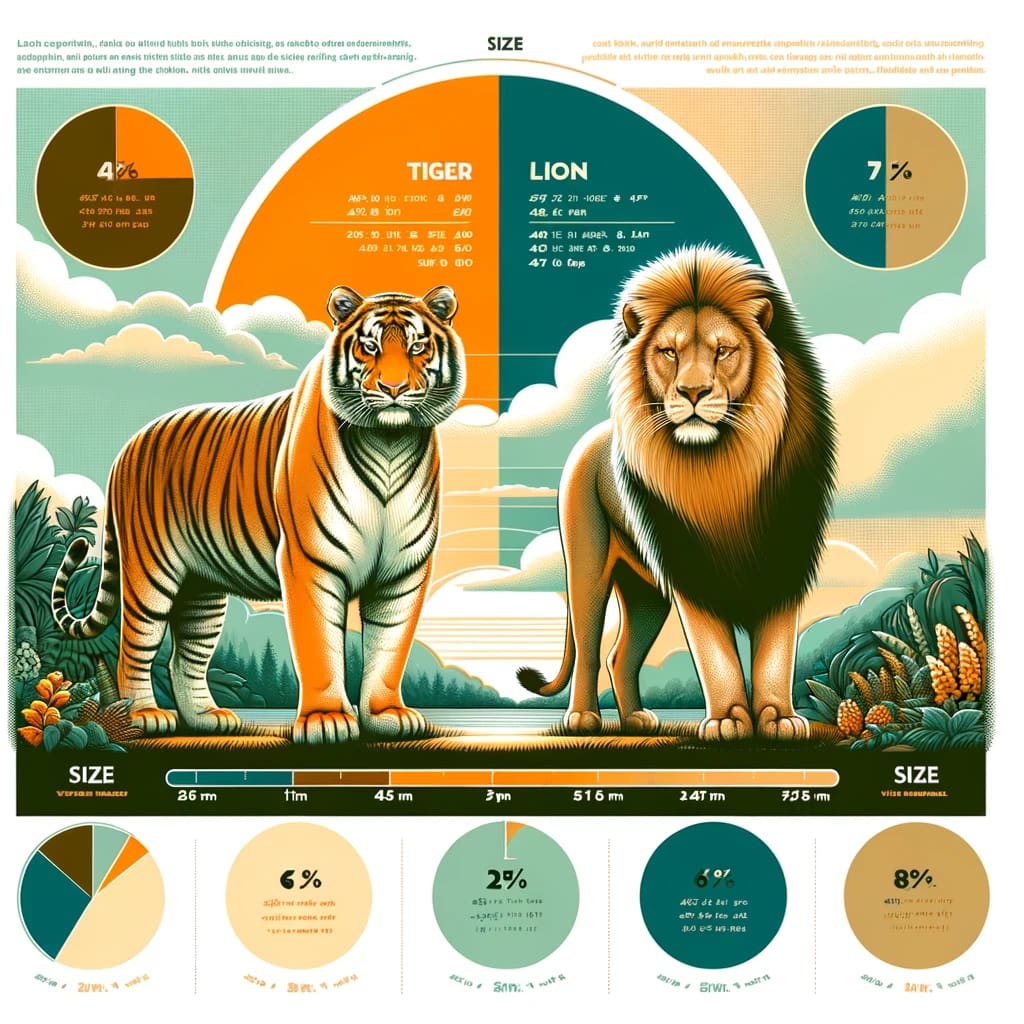Are Tigers Bigger Than Lions? Exploring the Giants of the Animal Kingdom
When we think of the majestic creatures that roam our planet, tigers and lions often come to mind. These big cats are not only symbols of strength and power but also subjects of curiosity and fascination. A common question many people ask is, “Are tigers bigger than lions?” Let’s dive into this topic and explore the sizes of these magnificent animals, along with some interesting facts.
Tigers Are Bigger Than Lions
Yes, tigers are indeed larger than lions. When comparing the two, tigers take the lead in terms of both weight and size. The largest tiger species, the Siberian tiger, can weigh up to 660 pounds and measure around 10 feet in length from nose to tail. In contrast, an adult male lion, often considered the king of the jungle, weighs about 420 pounds and reaches up to 8 feet in length.
How Much Bigger Are Tigers Than Lions?
On average, tigers are about 20% to 25% larger than lions. This difference isn’t just in weight and length; tigers also have a more muscular build. Their powerful legs and strong bodies make them excellent hunters, capable of taking down large prey with ease.

Lions Are Bigger Than Tigers?
While it’s a common misconception, lions are not bigger than tigers. Lions may have a more imposing appearance due to their majestic manes, but when it comes to physical size, tigers are the larger species. The mane of a lion can make it look bigger, but if you compare the body sizes, tigers are the clear winners.
Why Does Size Matter?
The size of these animals plays a crucial role in their environments. Tigers, being solitary hunters, rely on their size and strength to catch a variety of prey. Lions, on the other hand, live in prides and work together to hunt, which may be one reason why individual size isn’t as critical for them.
A Fascinating Comparison
Both tigers and lions are incredible creatures with unique traits and abilities. While tigers hold the title for size, lions have their social structures and hunting strategies that make them equally fascinating.
Frequently Asked Questions About Tigers and Lions
1. What is the main difference between tigers and lions?
The main difference lies in their physical characteristics and social behavior. Tigers are generally larger and more solitary animals, while lions live in social groups called prides and have a distinctive mane that males possess.
2. Can tigers and lions live in the same habitat?
Tigers and lions naturally inhabit different regions of the world. Lions are primarily found in Africa, with a small population in India’s Gir Forest, whereas tigers are found in various parts of Asia, including Siberia, India, and Southeast Asia. They do not share the same habitats in the wild.
3. How much bigger are tigers than lions?
Tigers are approximately 20% to 25% bigger than lions. This difference is noticeable in their weight, with tigers weighing up to 660 pounds and lions around 420 pounds, as well as in their overall body length.
4. Why do lions have manes but tigers do not?
The lion’s mane is thought to protect the neck during fights, as well as being a display of strength and health to attract females. Tigers, being solitary animals, have less need for such social signals and physical protections in their lifestyle.
5. Are there any conservation efforts in place for tigers and lions?
Yes, both tigers and lions are subjects of various global conservation efforts. Tigers are listed as endangered, and lions are considered vulnerable, with several organizations working to protect their habitats, reduce human-animal conflict, and prevent poaching and illegal trade.
Conclusion
Tigers are indeed larger than lions, a fact that adds to the intrigue and admiration we have for these powerful big cats. Whether you’re team tiger or team lion, one thing is clear: both of these animals are impressive and important parts of our natural world. Let’s continue to learn about and protect these magnificent creatures for generations to come.









